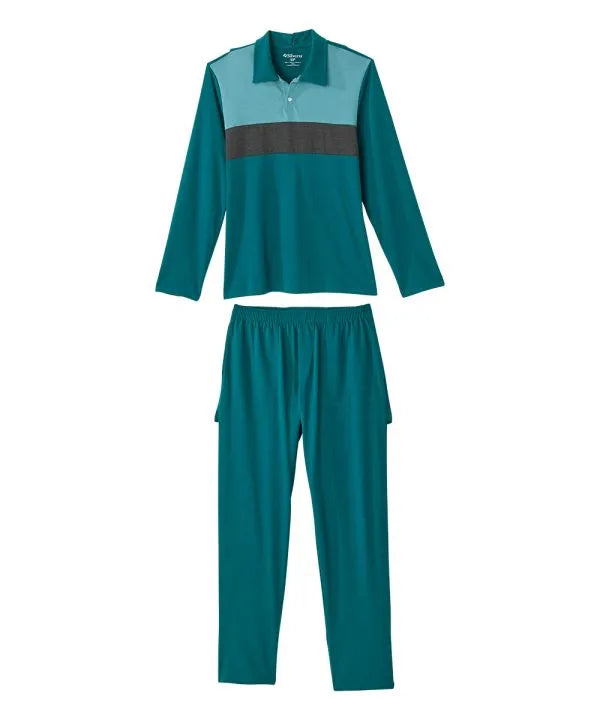Written by Tessa Lawrence & reviewed by Nicole Fernandes
People living with dementia can become discouraged by their condition. Elderly people diagnosed with dementia may struggle with physical and cognitive tasks, making it difficult to lead fulfilling and independent lives.
However, a dementia diagnosis does not mean the end of an engaging lifestyle for seniors. Helping our loved ones with dementia engage in social, physical, and cognitive activities can not only help their mental well-being but also slow the progression of dementia.
In this blog, we will discuss nine engaging activities for dementia patients that can be used as helpful tools to support enriching and fulfilling lives.
What Is Dementia?
Dementia is correlated to deteriorating brain functions. It is important to note that dementia is not a singular illness, as it can be caused by many different diseases. Brain functions are impacted when there is abnormal protein build-up in the brain which causes nerve cell damage. Symptoms of dementia are dependent on what brain functions are damaged. The most common type of dementia is Alzheimer’s disease.
What are the Symptoms of Dementia?
Symptoms can vary because there are many different types of dementia. However, there are a few common underlying symptoms in dementia patients. These symptoms can hinder the daily mental and physical capabilities of dementia patients. Symptoms can include:
- Mood swings
- Impaired concentration
- Confusion
- Memory loss
- Impaired conversational ability
- Difficulty in fulfilling basic tasks
While a dementia diagnosis can be challenging, it does not mean that seniors can no longer engage in enriching mental and physical activities. With the right support, our loved ones can continue to lead fulfilling lives.
Reminiscent Activities
Reminiscent activities are crucial to allowing dementia patients to share their stories. Exchanging past life experiences with friends, family, and peers, can help foster feelings of social enrichment and memory recollection.
Some examples of reminiscent activities include -
- Sharing past photo albums
- Watching old films that evoke past emotions
- Sorting and organizing old items
- Starting a book club for nostalgic novels
- Using digital devices or tablets to create a life story PowerPoint
It's important to note that while reminiscent activities can be beneficial, they should be tailored to each individual's abilities and preferences. Caregivers and healthcare professionals should create a supportive and safe environment, ensuring that activities are enjoyable and not overwhelming for individuals with dementia.
Swimming
Dementia patients can benefit in many ways from swimming. Swimming provides an opportunity for social engagement and promotes mental well-being. Senior swimming classes foster community and provide dementia patients with the opportunity to feel socially connected. Weekly classes help dementia patients to stay in contact with friends, reducing feelings of isolation common in seniors.
The healing properties of cold water can even result in reducing the risk of dementia. Submersion in cold water leads to “cold shock” proteins being released in the body. These essential proteins are often absent in dementia patients. Some studies suggest that cold water therapy can be beneficial to Alzheimer’s patients. When considering if swimming is the right activity for your loved ones, remember that each dementia patient has different abilities and needs.
Additionally, dementia patients may experience greater quality of sleep. Problems with sleep are common among people with dementia, which can contribute to cognitive decline. Swimming can help regulate sleep patterns with physical exhaustion and relaxation. The low-intensity movement can induce calmness, making it easier for dementia patients to fall asleep and helping with insomnia.
If you have a loved one struggling with sleep, consider investing in adaptive sleepwear to ensure their safety and comfort. June Adaptive has a wide selection of sleepwear like the Women's Long Sleeve Nightgown with Back Overlap which has ultra-soft material and a full back overlap to help make your loved ones' sleep routine effortless.

Dance
Whether at home, with a caretaker, or in long-term care, dance can be a helpful tool for people living with dementia. Dance provides dementia patients with the opportunity to unlock their invaluable creativity and playfulness. Movement can provide an outlet for self-expression amongst dementia patients who struggle to verbally communicate with others. Additionally, it can aid dementia patients in feeling connected and present within their physical bodies.
Dancing can be a particularly helpful physical activity for individuals with neurological diseases. The concentration on non-verbal expression through choreography or bodily repetition can significantly improve memory and cognitive functioning. A study published in the New England Journal of Medicine surveyed the risk of dementia in four hundred and sixty-nine people aged seventy-five and up and cited that dancing was the only physical activity linked to a lower risk of dementia. Dancing can not only help seniors with dementia fulfill their creative and playful urges but also may lessen cognitive decline.
To help your loved ones dance in comfort, it is important to ensure that they have the proper outfit to support their physical needs. June Adaptive has a wide range of adaptive clothing, created to fit the needs of dementia patients who deserve to feel supported every time they step outside. This begins with adaptive footwear, like June Adaptive’s Women's Supportive Memory Foam Shoes with Front Zipper Access!
The Supportive Memory Foam Shoes with Front Zipper Access are sporty, casual, and above all comfortable. The shoe was created with a padded heel collar to assure balance and stabilize feet. Another technological feature of the footwear is the removable memory foam insoles which provide cushion and absorb shock. These innovative functions are key to supporting the mobility required for dancing. If you are considering dancing for your loved ones, remember to equip them with comfortable and efficient footwear.

Colouring Books
Art activities can be a simple way to keep dementia patients engaged at home. Art therapy is a new and exciting method to help people with dementia creatively express themselves. Art activities have many beneficial impacts on dementia patients such as increased brain stimulation and improved memory. Additionally, loved ones can feel a sense of pride and accomplishment when producing their very own creations. The ability to independently create a piece of art enriches a feeling of self-sufficiency among dementia patients.
Colouring books are an excellent way for people with dementia to take their first step toward creative expression. This activity can also be completed at home! For dementia patients suffering from lower-body mobility issues, this simple and inexpensive activity could result in greater mental well-being and provide dementia patients with a sense of purpose.
Sensory gardens
Some communities have organizations that provide Alzheimer’s and dementia-friendly programmes. These organizations may have activities and venues created to enhance experiences for dementia patients. Consider exploring if your local community organizations offer dementia-friendly activities for your loved ones.
Sensory gardens are unique gardens designed to employ the five senses of sight, smell, sound, touch and taste. These gardens heighten the experience of nature by utilizing scented plants, sculptures, textured touch pads and special water features. Sensory gardens are specifically suited for dementia patients who may have experienced a deterioration of their five senses.
Sometimes it can be daunting for dementia patients to leave care facilities or at-home caretakers. It is important to ensure they feel confident in any outdoor excursions with the proper gear. Dementia patients can feel empowered and independent when assisted with go-to daily clothing. This Men's 2-Piece Set With Back Overlap from June Adaptive makes dressing an effortless task with a two-piece set.
The set features a convenient adjustable pant inseam and stylish colour blocking in a soft fabric that provides lightweight comfort with a stretchy waistband for all-day excursions.

Luminosity App
There are many helpful mobile applications geared toward dementia patients! These apps are accessible on digital tablets and offer a plethora of helpful and fun games for dementia patients. Because they are accessible on digital tablets, people living with dementia can enjoy these games at home and on the go.
Luminosity is an app designed to train the brains of dementia patients. Luminosity has activities that are research-based to test a variety of cognitive capabilities. They target memory, speed, and reasoning, through fun in-app games. The mobile application caters to various cognitive abilities and needs, providing a range of options to suit different individuals.
Integrating Luminosity into the daily routines of people living with dementia can incentivize them to challenge their cognitive abilities every day. With Luminosity, technology does not have to be a discouraging experience but a rewarding one.
Living with dementia can present challenges for seniors, but it does not mean the end of an engaging and fulfilling lifestyle. By incorporating social, physical, and cognitive activities into the lives of our loved ones with dementia, we can support their mental well-being and potentially slow the progression of the condition.
While each dementia patient is unique, these ideas for engaging activities can enhance their lives and overall well-being. By embracing a holistic approach and incorporating these activities into daily routines, we can make a positive impact in supporting individuals living with dementia.















